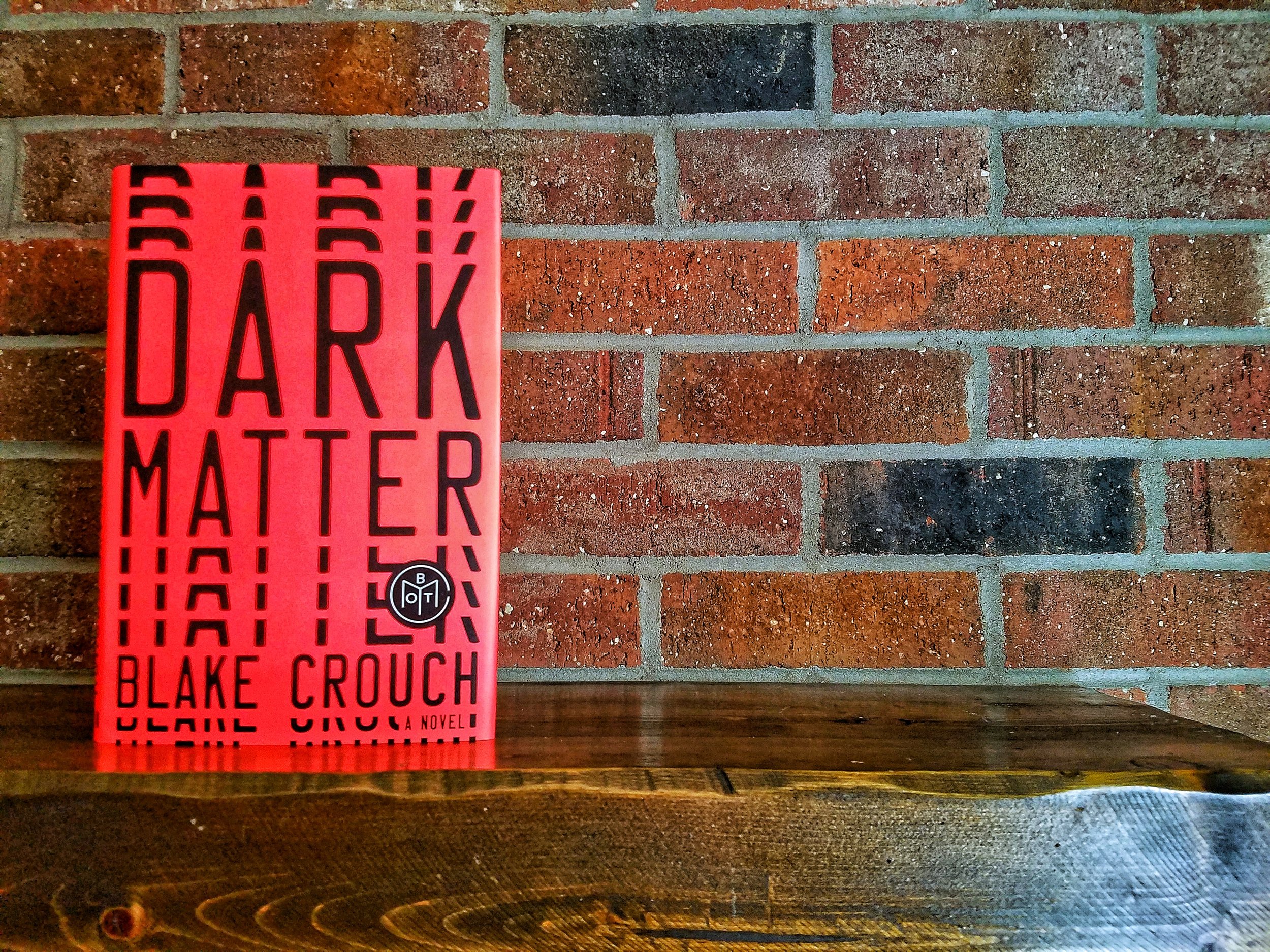From the very start of Blake Crouch’s novel, Dark Matter, our narrator builds tension and a deepening sense of unease. All good thrillers begin this way, and Dark Matter is no exception. We as readers know that what begins as a normal evening having dinner with the family is not going to end well for our Jason. I say “our Jason” because this is a tale of the multiverse, a concept from science fiction and theoretical physicists where every decision we make, every possibility that could ever exist, does exist in its own universe - a fun place for authors of science fiction and fantasy to play, for sure. And that’s exactly what Dark Matter is, fun. If you’re looking for a light science fiction adventure, Dark Matter will scratch that itch.
Jason, the narrator and main character, speaks to us in first person present tense, which adds urgency to the story. There is very little flare, no lyrical prose or flowery descriptions. The novel is extremely bare bones, which makes it an easy read. You could do it in one sitting. The physics behind the premise is also very digestible. A version of Jason somewhere in the multiverse has created a giant cube with the ability to put a person in a state of simultaneously observing all possible realities at once. This, in turn, allows the person in the cube, with the right drugs, to choose between other realities. Because of this, things go wrong for our Jason, who chose a different path in life away from becoming this renowned physicist, very quickly.
The multiverse is a strange and exciting if well-worn concept used to great effect in many science fiction stories. Dark Matter does manage to use the concept of the multiverse to tell a unique and engaging story of the road not traveled. Jason’s adventures take him to many alternate realities, some dangerous and deadly, some pleasant and futuristic. However, his main goal is to get home to that family we met at the beginning of the novel. The question we (including Jason) ask is: will he ever see his wife and child again? And, as the novel progresses, the question we should be asking is: how far is Jason willing to go to get back to his family?
I’m going to get into the nitty-gritty here, aka SPOILER TERRITORY. If you don’t want the ending spoiled, please stop here.
Dark Matter’s neck-breaking pace is fun in a junk food reading sort of way, but it never gives the reader or Jason a chance to really breathe and take in the heavy philosophical quandaries he faces throughout the story. How should he feel when an alternate version of the love of his life is shot between the eyes right in front of him? How would you react if another version of yourself knocked you out and took your place in this life? These are heavy questions. And they do get asked. But you’re reading so quickly (one line paragraphs rule the day here) that you don’t get to process them. It doesn’t help that it turns out our narrator, this gentle, loving husband and father we’ve gotten to know and care about, is apparently a few doors of reality away from becoming a straight-up cold-blooded murderer.
Let me take a step back. The novel breaks out into three narrative arcs. The first is where we meet Jason, he is kidnapped by another version of himself (but he doesn’t realize this till a very frustrating amount of time later), and kicked out of his world. The famous physicist Jason, the one who built the box, has decided that he has had enough of fame and the culmination of his life’s work. He wants in on that lovely family our Jason has created, so he trades places with him. Our Jason wakes up to great applause with no one at this state-of-the-art, super-secret facility the wiser that he is not their Jason. Chases happen. Then, unnecessary murders. Then, escape with the help of a nice psychiatrist lady who joins him on the second narrative arc.
Jason and Amanda, the nice lady who saved him, then go into the box and have quite the time of trying to find their way back to Jason’s world. Here is the meat of the story and where I had the most fun. Jason and Amanda only have so much of the magic science drug that allows them to use the box, so they are under a ticking clock. While they are together, we get a better understanding of how the box works and how to control it as well as some fun what-if scenarios. However, as soon as Amanda decides to leave, the story takes a depressing turn. Jason can only find his way back to universes that seem like his own, but are never quite right. He nearly stops trying and goes a little crazy.
The final arc is where Jason does finally find his way home. However, and here is the big spoiler, it turns out that multiple Jasons have split off from our Jason at the exact moment he entered the box. Now, our Jason must contend with over fifty other Jasons who have come to his (their) home universe to claim what is his (theirs). Yes, it is crazy. Of course, our Jason is the one who succeeds. However, by this point in the story, I had too many issues with the narrative, the science, and the character to be able to ignore them any longer. The multiple Jasons hanging around trying to figure out how to one-up one another to get back his family for himself was too much for me. Unique? Yes. Interesting? Absolutely. Plausible in any way? No. I don’t mean the science wasn’t plausible. Multiple Jasons making it back to their home universe is a fascinating and believable twist. Over fifty though? And most of them apparently murderous? It is a pulpy, nutty ending that conveniently and coincidentally ends up serving our Jason’s interests the most. I can’t help but wonder how much more difficult and poignant it would have been to have only a few Jasons make it back, most of them on the same page (ie: our family’s happiness is all that matters), and maybe one of them has gone crazy and starts picking them off one by one. That’s a nail-biting ending that would have blown my mind, but that’s not what I got.
I have so many more questions too. Like, how does the box open to universes that clearly don’t contain that state-of-the-art facility that made the box in the first place? And what point did Amanda really serve, other than to point out the obvious to a Jason who wasn’t really listening? And why were the bad guys at the facility so willing to shoot Jason when he’s the only one who could possibly understand how their multi-billion dollar project functions? I could go on.
Crouch has already sold the movie rights to Dark Matter, so I guess the only question that really matters is: will I buy a ticket to see it? The answer is yes. I will. Because, despite everything that bugged me about it, Dark Matter was still a fun read and it will likely be a crazy fun movie to watch.













Cadwell Turnbull's new novel — the first in a trilogy — imagines the hard, uncertain work of a fantastical justice.